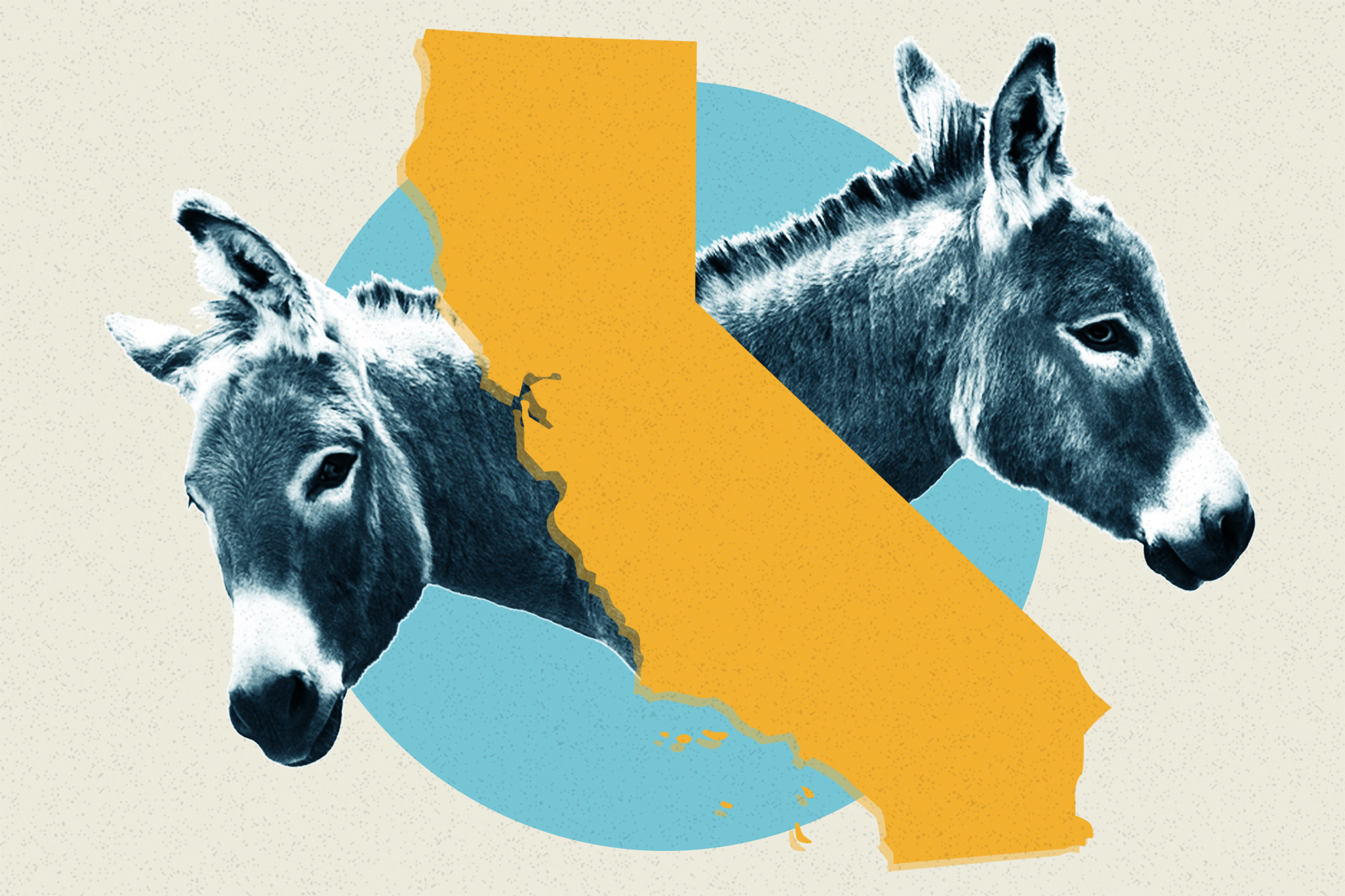
Beyond the agenda-grabbing issue of single-payer health care, the CMA regularly engaged in turf wars with other interest groups. Groups representing doctors and nurses clashed over “scope of practice” rules — essentially, how much leeway nondoctors have to perform some procedures. But doctors aren’t just squaring off with nurses.
Earlier this year, a Senate committee halted a bill, prioritized by LGBTQ groups but contested by doctors, to prohibit early surgical interventions on intersex children. Days before the hearing, the CMA channeled $50,000 to a new committee buoying one of the most centrist Senate Democrats, Steve Glazer, as he faced a union-backed challenger. Glazer chairs the decisive committee.
Doctors also have a longtime nemesis in trial lawyers, another reliable Democrat-backing interest group in California. Tensions between doctors and lawyers most often manifest in battles over California’s cap on medical malpractice payouts, which lawyer-aligned groups have long fought to raise.
With the latest iteration of that clash likely going on the ballot in 2020, the CMA recently uncorked a $5 million initiative to beat it back. The fact that the recurring fight tends to play out via ballot initiative, rather than legislation, speaks to the CMA’s power to quash any effort originating in the statehouse.
Law enforcement vs. criminal justice reformers
Not long ago, California’s stringent sentencing laws embodied the tough-on-crime policies prevailing across America. Political dynamics have shifted dramatically since then, with California lawmakers and voters approving a raft of bills and ballot initiatives to ease sentencing, legalize recreational marijuana use, open law enforcement records and restrict when police officers can use lethal force.
Even as that sea change has taken place, law enforcement groups have remained influential in Sacramento. Many lawmakers, particularly those with narrower roads to reelection, are wary of antagonizing local police chiefs, sheriffs and district attorneys.
Groups representing rank-and-file police officers, prison corrections officers and sheriff’s deputies regularly give money to Democratic lawmakers. In some cases, the law enforcement tie is explicit: Democratic Assemblyman Jim Cooper, a former sheriff’s deputy and a stalwart law enforcement backer, was facing a challenge this cycle from a well-funded Democratic opponent. Earlier this year a new pro-Cooper PAC emerged named “Keep a Cop in the Capitol.”
In 2018, law enforcement officers successfully quashed legislation that would have limited their ability to use lethal force. When the bill returned in 2019, law enforcement groups sponsored a diluted alternative promoted by a moderate Democrat. They funded advertisements warning that the version sought by reformers “would turn cops into criminals”; fliers distributed in Sacramento summarized the proposal’s effect as “another dead cop.”
Law enforcement advocates ultimately endorsed a more reform-oriented compromise measure.
The compromise was followed by outright losses for law-enforcement interests in sentencing and accountability measures. But the margin of those votes demonstrated how Democrats are far from monolithic on matters of law and order. A 2018 bill that prohibited prosecutors from trying minors in adult court for serious crimes like murder squeaked off the Assembly floor with the bare minimum of votes. So too did a 2019 measure barring certain sentencing enhancements for career criminals.
On the latter, resistant Democrats warned of the consequences: “These are the dangerous criminals that we should be locking up and keeping out of the public for public safety,” declared one Assembly member who had lost and then regained his battleground seat. “Let’s not lose our credibility, Democrats, by pushing for all these criminal justice reform bills.”
More battles on the horizon
From San Diego to Sacramento, California’s primary in March offered examples of money-saturated battles between Democrats. Oil companies, real estate agents, education reformers and other traditionally right-leaning interests muscled up with contributions to buoy their chosen Democrats, often counteracted by liberal activists and, in some cases, organized labor.
In many cases, Democrats accused their fellow party members of unfair play. In the race to fill the safely Democratic U.S. House seat in San Diego held by retiring Rep. Susan Davis, one Democrat accused her Democratic opponent of trying to push a Republican into the runoff with an ad whose lines of attack — highlighting the Republican’s record on guns and Trump — could read like positive qualifications to conservative voters. A top Democratic election strategist denounced the real estate industry’s successful effort to boost a baggage-laden Democrat into the general election as “the sleaziest tactic I’ve ever seen” and “a crime against humanity.”
But the best illustration of the divisions among Democrats may have once again, like the Los Angeles race won by Susan Rubio against Mike Eng in 2018, involved a member of the Rubio family. When Assemblyman Ian Calderon (D-Whittier) resigned his safe seat in the south San Gabriel Valley — near Richard Nixon’s childhood home in Whittier — a flood of Democratic candidates joined the nonpartisan primary — among them Calderon’s stepmother, Lisa Calderon, and Susan Rubio’s younger sister Sylvia Rubio.
Business interests once again lined up behind Rubio’s sister. Labor went all-in for Lisa Calderon, energized by the revelation that Rubio had once been a registered Republican. By Election Day, both sides had collectively plowed more than $2.7 million into outside spending for a single Assembly seat — a staggering investment by interest groups hoping to elect a Democrat in their image.
As the finals votes trickled in, Calderon led Rubio by about 2,500 votes. A token Republican sat in first, thanks to the fractured Democratic field, making it all but certain that come next year, organized labor will have the Democrat they want.
Source: politico.com
See more here: news365.stream






